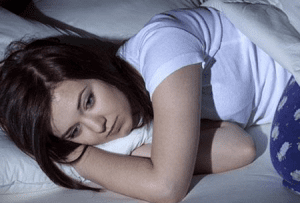10 Powerful Tips to Overcome Insomnia and Reclaim Restful Nights

Overview
Insomnia is a common sleep disorder that affects millions of people worldwide. It is characterized by difficulty falling asleep, staying asleep, or experiencing non-restorative sleep, leading to daytime fatigue and impairment in daily functioning. Insomnia can be acute, lasting for a short period, or chronic, persisting for weeks or months. It can result from various factors such as stress, anxiety, medical conditions, medications, or lifestyle habits. Effective management of insomnia involves identifying the underlying causes and adopting healthy sleep practices, lifestyle changes, and, in some cases, medical intervention.
10 Powerful Tips to Overcome Insomnia
-
Establish a Consistent Sleep Schedule: Go to bed and wake up at the same time every day, even on weekends, to regulate your body’s internal clock.
-
Create a Relaxing Bedtime Routine: Develop a calming pre-sleep routine, such as reading a book, taking a warm bath, or practicing relaxation exercises, to signal your body that it’s time to wind down.
-
Limit Screen Time Before Bed: Avoid electronic devices, such as smartphones and computers, at least an hour before bedtime as the blue light can disrupt your sleep-wake cycle.
-
Make Your Bedroom Comfortable: Create a sleep-conducive environment with a comfortable mattress, dark curtains, and a cool, quiet room.
-
Avoid Stimulants and Heavy Meals: Limit caffeine, nicotine, and large meals close to bedtime, as they can interfere with falling asleep.
-
Get Regular Exercise: Engage in regular physical activity, but avoid intense workouts close to bedtime as they may make it harder to fall asleep.
-
Manage Stress and Anxiety: Practice stress-reduction techniques like meditation, deep breathing, or yoga to ease your mind before bedtime.
-
Limit Naps: If you’re struggling with insomnia, try to limit daytime napping to avoid interfering with your nighttime sleep.
-
Control Light Exposure: Expose yourself to natural light during the day and keep your sleeping area dark at night to help regulate your sleep-wake cycle.
-
Seek Professional Help if Needed: If your insomnia persists despite trying these tips, consult a healthcare professional to identify any underlying medical conditions or discuss the potential benefits of cognitive behavioral therapy for insomnia (CBT-I).
Introduction to Insomnia: Understanding Sleep Disorders
Are you struggling to fall asleep at night? Do you find yourself tossing and turning, unable to get a restful night’s sleep? If so, you may be experiencing insomnia, a common sleep disorder that affects millions of people worldwide. Insomnia is characterized by difficulty in initiating or maintaining sleep, leading to daytime fatigue, mood disturbances, and impaired cognitive function.
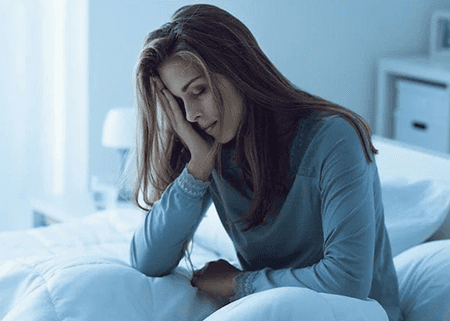
Insomnia can vary in its duration and severity. Some individuals may experience short-term insomnia, which lasts for a few days or weeks and is often triggered by stressful events such as work deadlines, relationship issues, or travel. On the other hand, chronic insomnia refers to long-term sleep difficulties that persist for a month or longer.
Understanding the different types of insomnia can help shed light on its complexities. There are two main types: primary insomnia and secondary insomnia. Primary insomnia is not directly caused by any underlying medical or psychiatric condition and is believed to be a result of various factors such as lifestyle, stress, and poor sleep habits. Secondary insomnia, on the other hand, is caused by an underlying medical condition, such as chronic pain, respiratory disorders, depression, or substance abuse.
Symptoms of Insomnia:
Insomnia is a sleep disorder characterized by difficulty falling asleep, staying asleep, or experiencing non-restorative sleep. Here are some general lines about the symptoms of insomnia:

-
Difficulty Falling Asleep: Individuals with insomnia often struggle to initiate sleep, spending a significant amount of time lying awake in bed before finally falling asleep.
-
Frequent Nighttime Awakenings: Insomnia can cause frequent awakenings during the night, disrupting the natural sleep cycle and making it challenging to achieve a deep, uninterrupted sleep.
-
Early Morning Awakening: Some individuals with insomnia may wake up too early in the morning and find it difficult to go back to sleep, resulting in inadequate sleep duration.
-
Non-Restorative Sleep: Despite spending enough time in bed, individuals with insomnia often wake up feeling unrefreshed and tired, lacking the restorative benefits of a good night’s sleep.
-
Daytime Fatigue and Sleepiness: Insomnia can lead to excessive daytime sleepiness, feeling fatigued, lacking energy, and experiencing difficulties concentrating and staying focused throughout the day.
-
Mood Disturbances: Insomnia can impact mood, causing irritability, mood swings, and increased susceptibility to stress.
Insomnia Symptoms:
Insomnia manifests through various symptoms that affect sleep quality and overall well-being. Here’s a detailed explanation of insomnia symptoms:

-
Difficulty Falling Asleep: Insomnia often involves difficulty initiating sleep. Individuals may spend a prolonged time in bed struggling to fall asleep, tossing and turning, and feeling frustrated by their inability to do so.
-
Frequent Nighttime Awakenings: Insomnia can lead to frequent awakenings during the night, interrupting the natural sleep cycle. Individuals may find themselves waking up multiple times, struggling to fall back asleep.
-
Early Morning Awakening: Some individuals with insomnia experience early morning awakening, where they wake up earlier than desired and find it challenging to resume sleep. This can result in feeling tired and groggy throughout the day.
-
Non-Restorative Sleep: Despite spending adequate time in bed, individuals with insomnia often wake up feeling unrefreshed. Their sleep is not restorative, leaving them with a sense of ongoing fatigue and diminished energy levels.
-
Daytime Fatigue and Sleepiness: Insomnia can cause excessive daytime sleepiness and fatigue. Individuals may struggle to stay awake and alert during the day, leading to difficulties with concentration, memory, and overall cognitive functioning.
-
Mood Disturbances: Insomnia can have a significant impact on mood and emotional well-being. It can contribute to irritability, mood swings, increased stress levels, and reduced tolerance for daily stressors.
Sleeplessness:
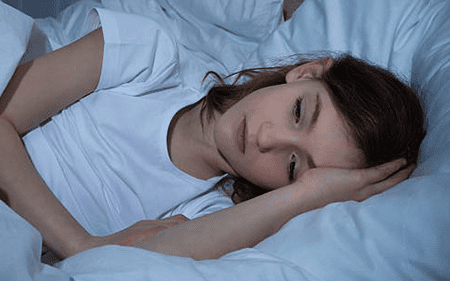
Sleeplessness is a key symptom of insomnia. It refers to the difficulty individuals with insomnia face in achieving sufficient sleep duration and quality. Sleeplessness can manifest as an inability to fall asleep at the beginning of the night, repeated awakenings throughout the night, or early morning awakening.
Individuals experiencing sleeplessness often feel frustrated, anxious, and fatigued due to the ongoing struggle with obtaining restorative sleep. Addressing the underlying causes of sleeplessness is essential for managing and treating insomnia effectively.
Insomnia and Anxiety:
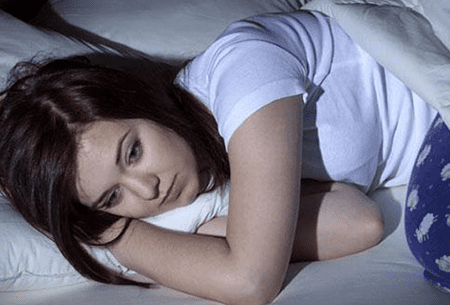
Insomnia and anxiety often coexist and can have a bidirectional relationship, where one exacerbates the other. Insomnia can be both a symptom and a risk factor for anxiety disorders. On the one hand, anxiety can lead to racing thoughts and worry, making it difficult to relax and fall asleep. On the other hand, the presence of chronic insomnia can contribute to increased anxiety levels and heightened feelings of distress.
The relationship between insomnia and anxiety underscores the importance of addressing both conditions simultaneously. Treating underlying anxiety disorders through therapy, stress management techniques, and, if necessary, medication, can help improve sleep quality and alleviate insomnia symptoms.
Remember, if you’re experiencing symptoms of insomnia, it’s crucial to consult with a healthcare professional for a proper evaluation, diagnosis, and personalized treatment plan.
Causes of Insomnia (sleeplessness):
Sleeplessness can have various underlying causes that contribute to the development of the sleep disorder. Here are some general lines about the causes of Sleeplessness:

-
Psychological Factors: Mental health conditions such as stress, anxiety, depression, and post-traumatic stress disorder (PTSD) can disrupt sleep patterns and contribute to the onset of sleeplessness.
-
Lifestyle Factors: Unhealthy sleep habits, irregular sleep schedules, excessive caffeine or alcohol consumption, and the use of electronic devices before bedtime can disrupt the body’s natural sleep-wake cycle and lead to sleeplessness.
-
Medical Conditions: Certain medical conditions and chronic illnesses, such as chronic pain, respiratory disorders, hormonal imbalances, gastrointestinal problems, and neurological conditions, can interfere with sleep and contribute to sleeplessness.
-
Medications: Some medications, including certain antidepressants, corticosteroids, and medications for managing conditions like asthma and allergies, may have side effects that affect sleep patterns and contribute to sleeplessness.
Stress and Insomnia:
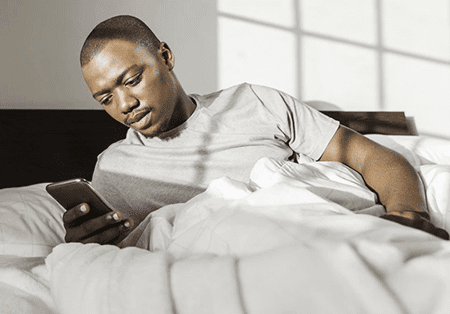
Stress is a significant contributor to sleeplessness. When individuals experience high levels of stress, their minds may become preoccupied with worry, racing thoughts, and a sense of unease. This mental and emotional strain can make it difficult to relax and fall asleep at night. Stress-related insomnia can involve difficulty falling asleep, frequent awakenings during the night, or early morning awakening.
Furthermore, the presence of chronic sleeplessness can further contribute to stress levels, creating a vicious cycle where stress exacerbates sleeplessness and vice versa. Effective stress management techniques, such as relaxation exercises, mindfulness practices, and therapy, can help address both the underlying stress and sleeplessness symptoms.
Lifestyle Factors:
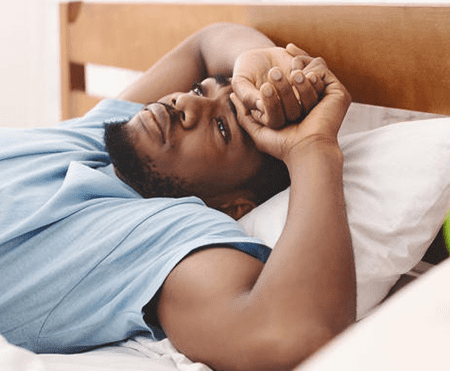
Certain lifestyle factors can significantly impact sleep quality and contribute to the development of sleeplessness. Unhealthy sleep habits, such as irregular sleep schedules, inconsistent bedtime routines, and a lack of sleep hygiene practices, can disrupt the body’s natural sleep-wake cycle. Additionally, excessive consumption of caffeine or alcohol, particularly close to bedtime, can interfere with the ability to fall asleep and maintain a restful sleep throughout the night.
The use of electronic devices before bedtime, due to the exposure to blue light and engaging content, can also hinder the onset of sleep. Establishing a consistent sleep routine, creating a sleep-friendly environment, limiting caffeine and alcohol intake, and implementing digital detox practices can help improve sleep quality and reduce the risk of sleeplessness.
Medical Conditions:
Various medical conditions and chronic illnesses can contribute to the development of sleeplessness. Conditions such as chronic pain, respiratory disorders (e.g., asthma, chronic obstructive pulmonary disease), hormonal imbalances (e.g., thyroid disorders, menopause), gastrointestinal problems (e.g., acid reflux, irritable bowel syndrome), and neurological conditions (e.g., Parkinson’s disease, Alzheimer’s disease) can disrupt sleep patterns and make it difficult to obtain restorative sleep.
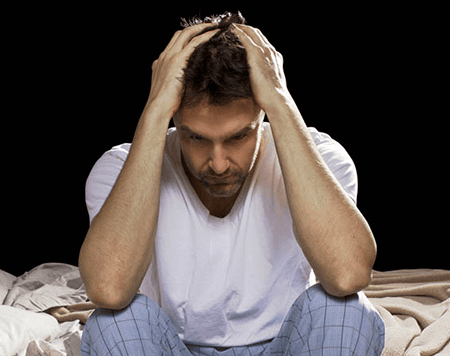
Furthermore, certain medications used to manage these medical conditions may have side effects that affect sleep, leading to sleeplessness. It is important to discuss any concerns about sleep disturbances with a healthcare professional who can evaluate the underlying medical conditions and adjust treatment plans accordingly.
Addressing the underlying causes of sleeplessness, such as stress management, adopting healthy sleep habits, and managing medical conditions effectively, is crucial for promoting restful and rejuvenating sleep.
Remember, if you are experiencing persistent sleeplessness symptoms, it is advisable to consult with a healthcare professional for a comprehensive evaluation and personalized guidance.
Diagnosis of Sleeplessness:
Sleeplessness, also known as insomnia, can be diagnosed through various methods that help healthcare professionals assess an individual’s sleep patterns and identify underlying causes. Here are some general lines about the diagnosis of sleeplessness:
-
Clinical Evaluation: A healthcare professional will conduct a comprehensive clinical evaluation to gather information about the individual’s sleep history, including the duration, frequency, and severity of sleeplessness symptoms. They will also inquire about any underlying medical conditions, medications, or lifestyle factors that may be contributing to the sleep disturbances.
-
Sleep Diary: Keeping a sleep diary can be helpful in tracking sleep patterns over a period of time. Individuals are encouraged to record information about their bedtime routines, sleep onset latency (time taken to fall asleep), nighttime awakenings, and overall sleep quality. This information provides valuable insights into the sleep patterns and aids in the diagnosis process.
-
Sleep Questionnaires: Healthcare professionals may use standardized sleep questionnaires to assess sleep quality, daytime sleepiness, and the impact of sleeplessness on an individual’s daily functioning. These questionnaires help in evaluating the severity of sleeplessness symptoms and provide additional information for diagnosis and treatment planning.
Insomnia Diagnosis:
Diagnosing sleeplessness involves a thorough assessment of an individual’s sleep patterns and associated symptoms. Healthcare professionals consider the criteria outlined in the Diagnostic and Statistical Manual of Mental Disorders (DSM-5) for diagnosing sleeplessness. These criteria include experiencing difficulties with sleep initiation, maintenance, or quality, along with associated daytime impairment.
To confirm the diagnosis, healthcare professionals may conduct further evaluations and assessments.
Insomnia Assessment:
Assessing sleeplessness involves a comprehensive evaluation of an individual’s sleep patterns, medical history, and lifestyle factors. Healthcare professionals may use a combination of clinical interviews, sleep questionnaires, and sleep diaries to gather information.
During the assessment, healthcare professionals aim to identify any underlying causes or contributing factors to sleeplessness. This may involve exploring psychological factors such as stress, anxiety, or depression, as well as lifestyle factors like irregular sleep schedules, excessive caffeine or alcohol consumption, or the use of certain medications.
The assessment process helps in determining the severity and impact of sleeplessness on an individual’s daily functioning and guides the development of an appropriate treatment plan.
Polysomnography:
Polysomnography is a diagnostic test used to assess sleep disorders, including sleeplessness. It involves monitoring various physiological parameters during sleep, such as brain waves, eye movements, muscle activity, heart rate, and breathing patterns. This comprehensive evaluation provides valuable information about the individual’s sleep architecture, presence of sleep disturbances, and the overall quality of sleep.
Polysomnography is typically conducted in a sleep laboratory, where individuals spend a night while connected to monitoring devices. It allows healthcare professionals to gather detailed data about sleep patterns and potential underlying factors contributing to sleeplessness. The results of polysomnography help in confirming the diagnosis and guiding appropriate treatment strategies.
It’s important to consult with a healthcare professional for a comprehensive evaluation and accurate diagnosis of sleeplessness. This allows for personalized treatment planning and addressing any underlying causes contributing to sleep disturbances.
Remember, the diagnosis and management of sleeplessness should be done under the guidance of qualified healthcare professionals.
Prevention of Sleeplessness:
Preventing sleeplessness, also known as insomnia, involves adopting healthy sleep habits and creating an environment conducive to quality sleep. Here are some general lines about the prevention of sleeplessness:
-
Maintain a Consistent Sleep Schedule: Establishing a regular sleep-wake schedule helps regulate the body’s internal clock and promotes a more consistent sleep pattern. Aim to go to bed and wake up at the same time each day, even on weekends.
-
Create a Relaxing Bedtime Routine: Engage in relaxing activities before bedtime to signal to your body that it’s time to unwind and prepare for sleep. This may include reading a book, taking a warm bath, practicing relaxation techniques, or listening to calming music.
-
Limit Stimulants: Avoid consuming caffeine, nicotine, and alcohol close to bedtime, as they can disrupt sleep patterns. These substances act as stimulants and can interfere with falling asleep or cause fragmented sleep throughout the night.
-
Establish a Sleep-Friendly Environment: Ensure that your bedroom is conducive to sleep. Keep the room cool, dark, and quiet, and invest in a comfortable mattress, pillows, and bedding. Consider using blackout curtains, earplugs, or white noise machines to minimize external disturbances.
More Related Tips for Better Sleep:
Improving sleep quality involves incorporating healthy sleep habits into your daily routine. Here are some tips for better sleep:
- Stick to a regular sleep schedule, even on weekends.
- Create a relaxing bedtime routine that helps you unwind and prepares you for sleep.
- Make your bedroom a sleep-friendly environment, with comfortable bedding and a quiet, dark atmosphere.
- Limit daytime napping, especially in the late afternoon or evening.
- Engage in regular physical activity during the day, but avoid exercising too close to bedtime.
- Avoid consuming stimulants like caffeine and nicotine, particularly in the hours leading up to bedtime.
- Manage stress through relaxation techniques, such as deep breathing exercises, meditation, or yoga.
- Limit exposure to electronic devices before bedtime, as the blue light emitted can interfere with sleep onset.
Healthy Bedtime Routine:
Establishing a consistent bedtime routine can help signal to your body that it’s time to wind down and prepare for sleep. Consider incorporating the following elements into your routine:
- Set a regular bedtime and wake-up time, allowing for adequate sleep duration.
- Engage in relaxing activities before bed, such as reading a book, practicing mindfulness, or taking a warm bath.
- Avoid stimulating activities, like intense exercise or engaging in work-related tasks, close to bedtime.
- Create a calm and soothing atmosphere in your bedroom, dimming the lights and minimizing noise.
- Practice relaxation techniques, such as deep breathing exercises or progressive muscle relaxation, to promote relaxation and prepare for sleep.
Creating a Sleep-Friendly Environment:
Your sleep environment plays a crucial role in promoting quality sleep. Consider the following tips for creating a sleep-friendly environment:
- Keep your bedroom cool, ideally between 60-67°F (15-19°C), as a cooler temperature promotes better sleep.
- Ensure your mattress, pillows, and bedding are comfortable and supportive.
- Use blackout curtains or an eye mask to block out any external light that may interfere with sleep.
- Reduce noise levels by using earplugs, white noise machines, or soothing sounds like rainfall or ocean waves.
- Minimize distractions in the bedroom, such as electronic devices, work-related materials, or clutter.
- Consider the impact of bedroom humidity and maintain an optimal level to prevent discomfort during sleep.
By implementing these preventive measures, you can create an environment and routine that promotes restful and rejuvenating sleep.
Remember, everyone’s sleep needs and preferences may vary, so it’s essential to find what works best for you. Consulting with a healthcare professional can provide personalized guidance and support in improving sleep quality and preventing sleeplessness.
Treatment of Sleeplessness:
The treatment of sleeplessness, also known as insomnia, involves various approaches that aim to improve sleep quality and address underlying factors contributing to the condition. Here are some general lines about the treatment of sleeplessness:
-
Comprehensive Assessment: A healthcare professional will conduct a thorough evaluation to assess the severity and underlying causes of sleeplessness. This assessment may include reviewing medical history, sleep patterns, lifestyle factors, and any coexisting conditions that may be impacting sleep.
-
Targeting Underlying Causes: Identifying and addressing the underlying causes of sleeplessness is an important aspect of treatment. This may involve managing stress, addressing mental health conditions, adjusting medications, or treating coexisting medical conditions that contribute to sleep disturbances.
-
Adopting Healthy Sleep Habits: Encouraging good sleep hygiene practices can significantly improve sleep quality. This includes establishing a consistent sleep-wake schedule, creating a relaxing bedtime routine, maintaining a sleep-friendly environment, and limiting stimulants like caffeine and nicotine.
Natural Remedies for Sleeplessness:
Natural remedies can be used as a part of a comprehensive treatment plan for sleeplessness. These remedies focus on promoting relaxation and creating a conducive environment for sleep. Some examples include:
- Relaxation techniques: Practices like deep breathing exercises, progressive muscle relaxation, guided imagery, and meditation can help calm the mind and prepare the body for sleep.
- Herbal supplements: Certain herbs, such as valerian root, chamomile, lavender, and passionflower, are believed to have calming properties and may aid in improving sleep quality. It’s important to consult with a healthcare professional before using any herbal supplements.
- Sleep-promoting foods: Consuming foods that contain tryptophan, magnesium, and melatonin, such as warm milk, bananas, nuts, and tart cherries, may have a positive impact on sleep.
Cognitive Behavioral Therapy for Sleeplessness:
Cognitive Behavioral Therapy for Sleeplessness (CBT-I) is a structured therapeutic approach that focuses on identifying and modifying the thoughts, behaviors, and emotions associated with sleeplessness. It aims to address the underlying factors contributing to sleep disturbances and develop healthier sleep habits. CBT-I may include the following techniques:
- Sleep restriction therapy: This technique involves limiting the time spent in bed to match the actual amount of sleep obtained, gradually increasing it as sleep improves.
- Stimulus control therapy: It aims to associate the bed and bedroom with sleep by establishing a consistent sleep routine, limiting activities in bed to sleep and intimacy, and avoiding stimulating behaviors in the bedroom.
- Cognitive therapy: Identifying and challenging negative thoughts and beliefs about sleep, addressing worries related to sleeplessness, and promoting more positive and realistic sleep-related thoughts.
CBT-I is typically delivered by trained therapists and has shown to be effective in improving sleep quality and treating sleeplessness.
Prescription Sleep Aids:
In some cases, when sleeplessness persists and significantly affects daily functioning, healthcare professionals may prescribe sleep aids to facilitate sleep. These medications are typically used for short-term management and may include sedative-hypnotics, such as benzodiazepines or non-benzodiazepine receptor agonists. It’s important to use prescription sleep aids under the guidance of a healthcare professional, as they may have side effects and carry the risk of dependency.
It’s essential to consult with a healthcare professional to determine the most appropriate treatment approach for sleeplessness based on individual needs, underlying causes, and overall health considerations. Treatment may involve a combination of strategies to achieve optimal sleep and improve overall well-being.
Remember, the treatment of sleeplessness should be tailored to the individual, and ongoing communication with healthcare professionals can help monitor progress and make necessary adjustments to the treatment plan.
Impact of Sleeplessness on Health:
Sleeplessness, also known as insomnia, can have a significant impact on various aspects of an individual’s health and well-being. Here are some general lines about the impact of sleeplessness on health:
-
Mental Health: Sleeplessness is closely linked to mental health conditions. It can contribute to the development or exacerbation of mood disorders, such as depression and anxiety. Lack of quality sleep can affect emotional regulation, increase irritability, and impair cognitive function, including concentration and memory.
-
Productivity and Performance: Sleeplessness can hinder productivity and performance in daily activities. Fatigue, difficulty focusing, and decreased alertness due to sleep deprivation can negatively impact work productivity, academic performance, and overall efficiency in various tasks.
-
Overall Well-being: Adequate sleep is crucial for maintaining optimal overall well-being. Sleeplessness can lead to physical discomfort, decreased immune function, and an increased risk of developing chronic conditions like cardiovascular disease, diabetes, and obesity. It can also contribute to daytime fatigue, reduced energy levels, and a diminished quality of life.
Sleeplessness and Mental Health:
Sleeplessness and mental health are closely intertwined. Chronic sleeplessness can contribute to the development or worsening of mental health conditions, including:
- Depression: Sleeplessness can be both a symptom and a risk factor for depression. The relationship between sleep and mood is bidirectional, as sleep disturbances can contribute to depressive symptoms, while depression can disrupt sleep patterns.
- Anxiety: Sleeplessness can increase anxiety levels and exacerbate anxiety disorders. The lack of quality sleep can lead to heightened emotional reactivity, excessive worrying, and difficulty coping with stressors.
- Stress: Sleeplessness can make individuals more vulnerable to the negative effects of stress. It impairs the body’s ability to recover and recharge, making it harder to manage and cope with daily stressors.
Sleeplessness and Productivity:
Sleeplessness can significantly impact productivity and performance in various areas of life:
- Work Performance: Sleeplessness can impair cognitive function, attention, and decision-making abilities, leading to decreased work productivity, errors, and increased absenteeism. It can also affect interpersonal relationships and job satisfaction.
- Academic Performance: Students experiencing sleeplessness may face challenges in concentration, memory retention, and learning abilities. It can hinder academic performance, impact grades, and hinder overall educational success.
Sleeplessness and Overall Well-being:
Sleeplessness can have a profound impact on overall well-being and quality of life:
- Physical Health: Sleeplessness is associated with an increased risk of various physical health conditions, including obesity, diabetes, cardiovascular disease, and compromised immune function. Chronic sleeplessness can disrupt hormonal balance, increase inflammation, and affect metabolism.
- Fatigue and Energy Levels: Lack of quality sleep can result in persistent fatigue, reduced energy levels, and a decreased ability to engage in daily activities. It can also lead to decreased motivation and an overall sense of lethargy.
- Quality of Life: Sleeplessness can affect an individual’s overall quality of life, leading to decreased enjoyment of activities, reduced social interactions, and a negative impact on relationships and emotional well-being.
Addressing sleeplessness and prioritizing healthy sleep habits is crucial for maintaining optimal health, promoting well-being, and preventing the negative consequences associated with sleep deprivation.
It’s important to consult with a healthcare professional for an accurate diagnosis, individualized guidance, and appropriate interventions to manage sleeplessness and improve overall health and well-being.
Related Links
Conclusion
In conclusion, sleeplessness, or insomnia, is a common sleep disorder that can have a significant impact on an individual’s health and well-being. It is characterized by difficulty falling asleep, staying asleep, or experiencing non-restorative sleep. Sleeplessness can stem from various factors, including stress, lifestyle choices, medical conditions, and mental health disorders.
Managing sleeplessness requires a comprehensive approach that addresses both the underlying causes and symptoms. Treatment options range from lifestyle modifications and behavioral interventions to medical interventions, depending on the severity and underlying factors contributing to sleeplessness.
By adopting healthy sleep habits, such as maintaining a consistent sleep schedule, creating a relaxing bedtime routine, and ensuring a sleep-friendly environment, individuals can improve sleep quality and promote overall well-being. Seeking professional help, such as consulting with a healthcare provider or sleep specialist, can provide personalized guidance and support in managing sleeplessness effectively.
Remember, prioritizing sleep and taking steps to address sleeplessness is vital for maintaining optimal physical and mental health, improving productivity, and enhancing overall quality of life.
Q: 1. Can stress contribute to sleeplessness?
A : Yes, stress is a common factor contributing to sleeplessness. Heightened stress levels can make it difficult to relax and fall asleep, leading to sleep disturbances and insomnia.
Q: 2. Are there any natural remedies for sleeplessness?
A : Yes, several natural remedies may help improve sleeplessness. These include relaxation techniques, such as deep breathing exercises and meditation, herbal supplements like valerian root or chamomile tea, and maintaining a consistent sleep schedule.
Q: 3. What is cognitive behavioral therapy for sleeplessness?
A : Cognitive behavioral therapy for sleeplessness (CBT-I) is a structured therapeutic approach that aims to identify and modify thoughts, behaviors, and emotions associated with sleeplessness. It focuses on developing healthier sleep habits and addressing underlying factors contributing to sleep disturbances.
Q: 4. Can prescription sleep aids be used to treat sleeplessness?
A : In some cases, healthcare professionals may prescribe sleep aids for short-term management of sleeplessness. These medications should be used under the guidance of a healthcare provider, as they may have side effects and carry the risk of dependency.
Q: 5. How can sleeplessness impact mental health?
A : Sleeplessness can contribute to or worsen mental health conditions such as depression, anxiety, and stress. Lack of quality sleep can affect emotional regulation, increase irritability, and impair cognitive function.
More Links
If you have insomnia? |
Insomnia |
